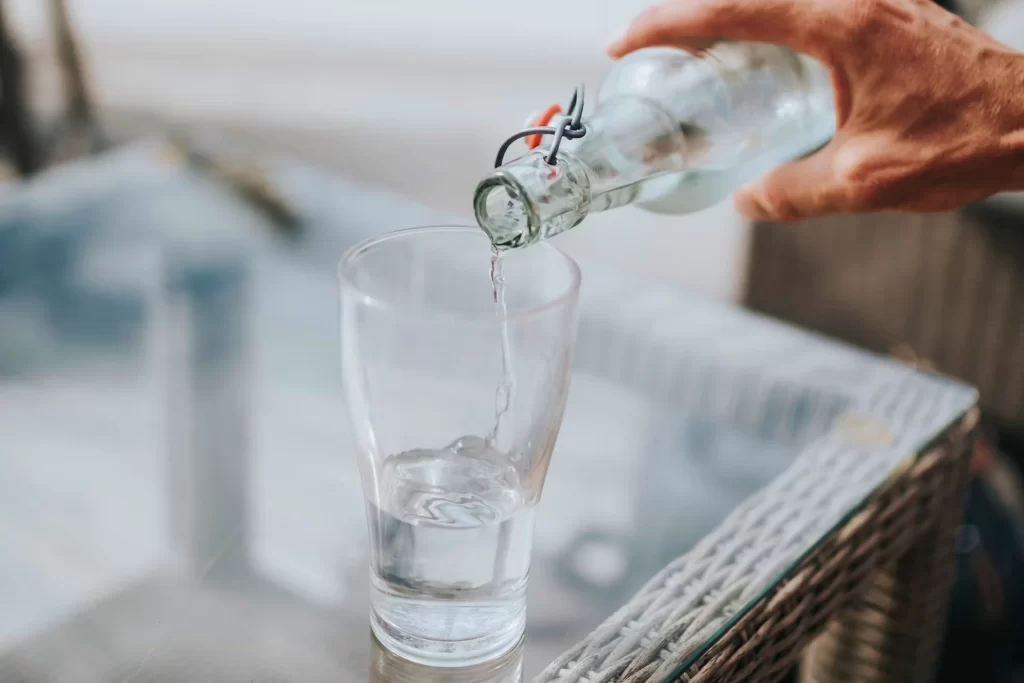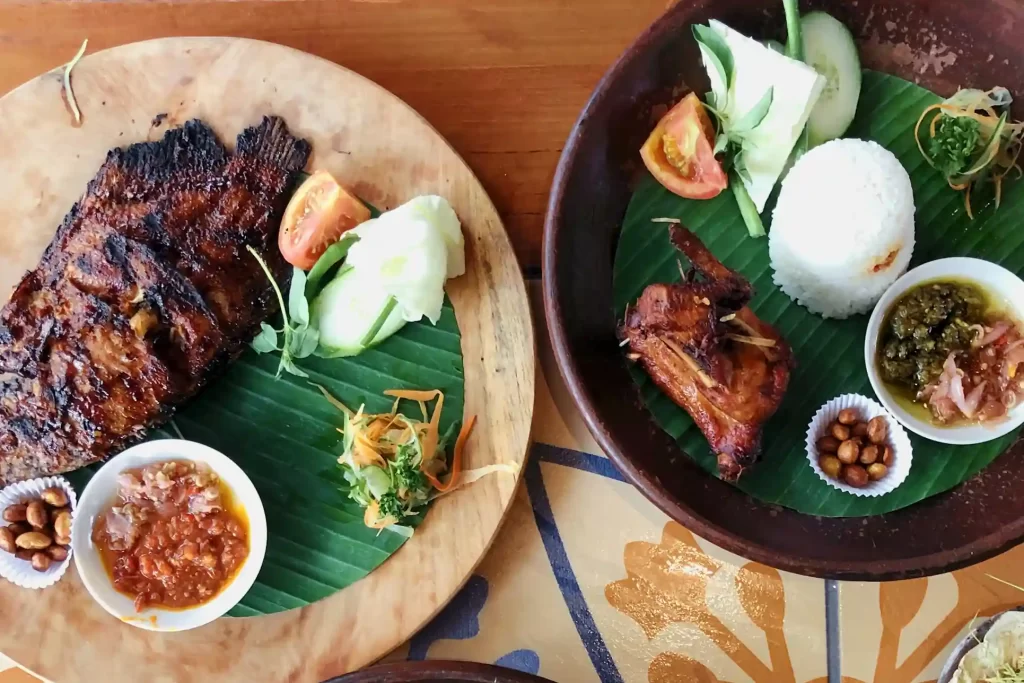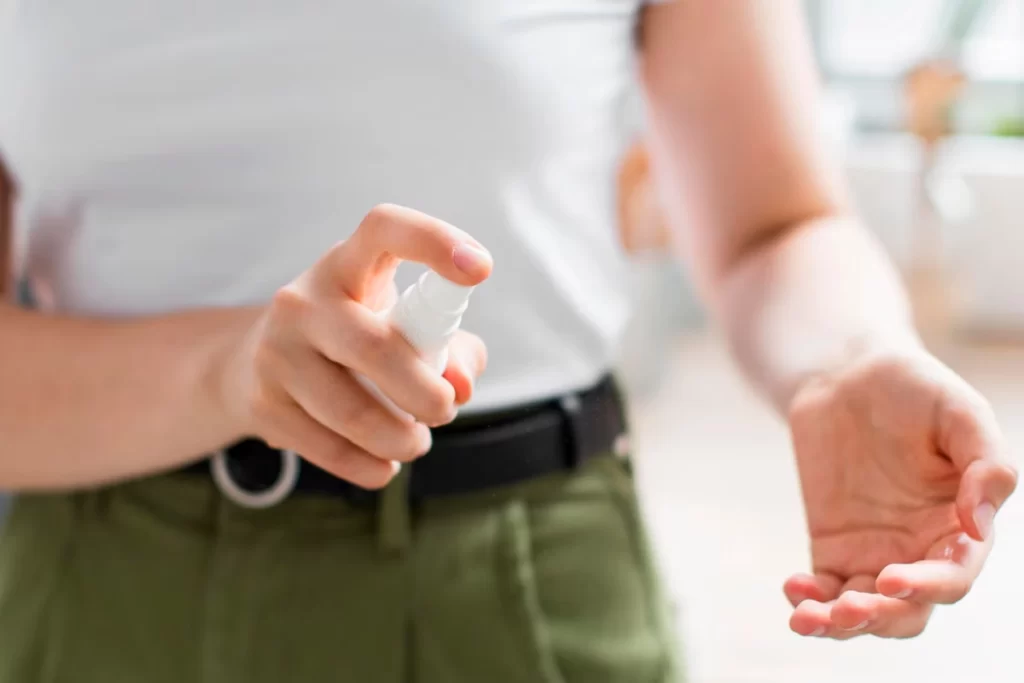Bali, the “Island of the Gods,” is a captivating destination renowned for its stunning beaches, vibrant culture, and spiritual significance. From majestic temples and lush rice paddies to world-class surfing and luxurious spas, Bali offers something for every traveler.
While Bali welcomes you with its beauty, prioritizing hygiene and health practices is crucial for a truly enjoyable experience. By following a few simple precautions, you can ensure your trip is filled with happy memories, not unwanted illnesses.
Staying Hydrated and Avoiding Food Illness
Water Risks

Let’s face it, staying hydrated is essential, especially in Bali’s tropical climate. But while you might be tempted to grab a glass from the tap, it’s best to stick with bottled water. Here’s why:
Tap Water Risks
While staying hydrated is essential in Bali’s tropical climate, unfortunately, tap water isn’t always the safest option. Although some areas may have treated water, the infrastructure can be uneven, and the overall quality can vary greatly. For travelers, it’s simply not worth the risk. Untreated tap water can harbor a variety of unwelcome guests, including bacteria like E. coli, Salmonella, and Campylobacter, which can cause unpleasant stomach cramps, diarrhea, and vomiting.
Microscopic parasites like Giardia and Cryptosporidium can also be present, leading to similar issues and potential dehydration. These unwelcome hitchhikers can put a serious damper on your Bali adventure. So, to avoid a nasty case of “Bali Belly” and ensure a happy digestive system, stick with bottled water throughout your trip.
Choosing Bottled Water Wisely
When it comes to bottled water, a little vigilance goes a long way. Always check for a tamper-evident seal on the bottle cap. Any broken or loose seals could indicate contamination. Stick with established, reputable bottled water brands, as these companies have stricter quality control measures in place.
Finally, avoid bottles that have been sitting in direct sunlight for extended periods. Heat can accelerate bacterial growth within the plastic, even if the seal is intact. Opt for bottles stored in shaded areas. By following these simple tips, you can ensure you’re staying hydrated with the cleanest, safest bottled water available and avoid any unpleasant stomach issues that could disrupt your Bali experience.
Food Safety Tips

Food is a fantastic way to experience a new culture, and Bali offers a delightful culinary scene with something to tempt every palate. However, to avoid a famous foodborne illness in bali commonly known as “Bali Belly” and ensure a happy digestive system, here are some smart strategies:
Restaurant Reputation Matters
Look for established restaurants with a clean and inviting atmosphere. This is often a good indicator of their hygiene practices. Pay attention to customer turnover – a steady flow of diners suggests fresh ingredients being used regularly. Restaurants like our Woods Bali or Red Gunpowder are good choices and fit the criteria.
Fresh is Best
When it comes to meals, prioritize freshly cooked dishes. Buffets can be tempting, but food sitting out for extended periods can harbor bacteria. Opt for dishes prepared to order or those with a high turnover, ensuring you get the freshest ingredients possible.
Fruits and Veggies
While fresh fruits and vegetables are a delicious and healthy way to stay energized, a little caution is necessary. If you plan to eat them unpeeled, wash them thoroughly yourself. Consider using bottled water for washing as well, as tap water can harbor bacteria. If you’re unsure about the water quality, it’s best to stick with fruits that you can peel yourself, like bananas or mangoes.
Proceed with Caution
Bali’s vibrant street food scene is a must-try for many travelers. However, it’s important to be cautious. Look for vendors with clean carts or stalls and proper food handling practices. Stick to well-cooked options like grilled meats or stir-fries. If something seems questionable, it’s best to err on the side of caution and choose something else.
Bali Belly is a serious threat that could ruin your time in Bali, to avoid it, check out our article on Understanding Bali Belly: Symptoms, Prevention, and Treatment
Sun Protection and Safety Advice

Bali’s beauty is undeniable, with its sun-drenched beaches and crystal-clear waters. However, the tropical sun can be intense, so protecting yourself is crucial. Sunburn is not only uncomfortable, but it can also damage your skin and increase your risk of skin cancer. Here’s how to stay sun-safe:
High SPF is Your BFF
Choose a broad-spectrum sunscreen with SPF 30 or higher. For extended sun exposure, opt for SPF 50+. Don’t forget about your lips! Use a lip balm with SPF protection.
Reapply, Reapply, Reapply
Sunscreen wears off over time, especially after swimming or sweating. Reapply sunscreen every two hours, and more frequently if you’re swimming or sweating a lot.
Seek Shade During the Strongest Rays
The sun is at its peak intensity between 10 am and 4 pm. During these times, seek shade under umbrellas, trees, or a hat. Relaxing with a good book or exploring temples are great ways to cool down and avoid sunburn.
Keeping Mosquitos at Bay

Bali, like many tropical destinations, has its fair share of mosquitos. These pesky insects can not only be a nuisance with their bites, but they can also transmit diseases like Dengue Fever. Here’s how to win the bug battle keep yourself safe from one of these little insect:
DEET Your Defense
Use insect repellent containing DEET. DEET (N,N-Diethyl-meta-toluamide) is a chemical that is the active ingredient commonly found in insect repellents products. (consider concentrations between 15% and 30%). Always follow the instructions on the label and avoid applying it directly to your face.
Cover Up During Peak Mosquito Hours
Mosquitos are most active at dawn and dusk. Consider wearing long sleeves and pants during these times, especially if you’re exploring outdoor areas.
What to Pack for Your Safety
A little preparation can go a long way in turning a minor travel woe into a blip on the radar. To ensure you’re equipped to handle small health concerns, consider packing a compact “peace of mind” kit:
- Pain Reliever: Pack an over-the-counter pain reliever like ibuprofen or acetaminophen to address headaches, muscle aches, or general discomfort.
- Diarrhea Defense: Include an antidiarrheal medication like loperamide to help manage mild cases of traveler’s diarrhea, a common travel ailment.
- Allergy Medication: If you suffer from allergies or anticipate encountering insect bites, pack antihistamines to help alleviate symptoms like itching and swelling.
- First Aid: A few sterile bandages and a pack of antiseptic wipes will come in handy for treating minor cuts or scrapes you might encounter on your adventures.
To make sure you’re prepared for your adventure on the Island of Gods, check out our article on 7 Things I Wish I Know Before Visiting Bali
By following these simple tips, you can ensure a healthy, happy, and unforgettable adventure in Bali. From staying hydrated and sun-safe to being prepared for minor ailments, a little planning goes a long way.
Remember, Bali is a paradise waiting to be explored, and with these precautions in mind, you can focus on soaking up the beauty, culture, and delicious food. Speaking of delicious food, if you’re looking for a restaurant in Canggu or Pererenan that prioritizes both culinary satisfaction and the highest hygiene standards, look no further than Woods Bali! We serve up mouthwatering Mediterranean cuisine guaranteed to treat your taste buds. Visit us and experience the perfect blend of taste and Bali blissful atmosphere! Selamat makan (enjoy your meal) and bon voyage!









